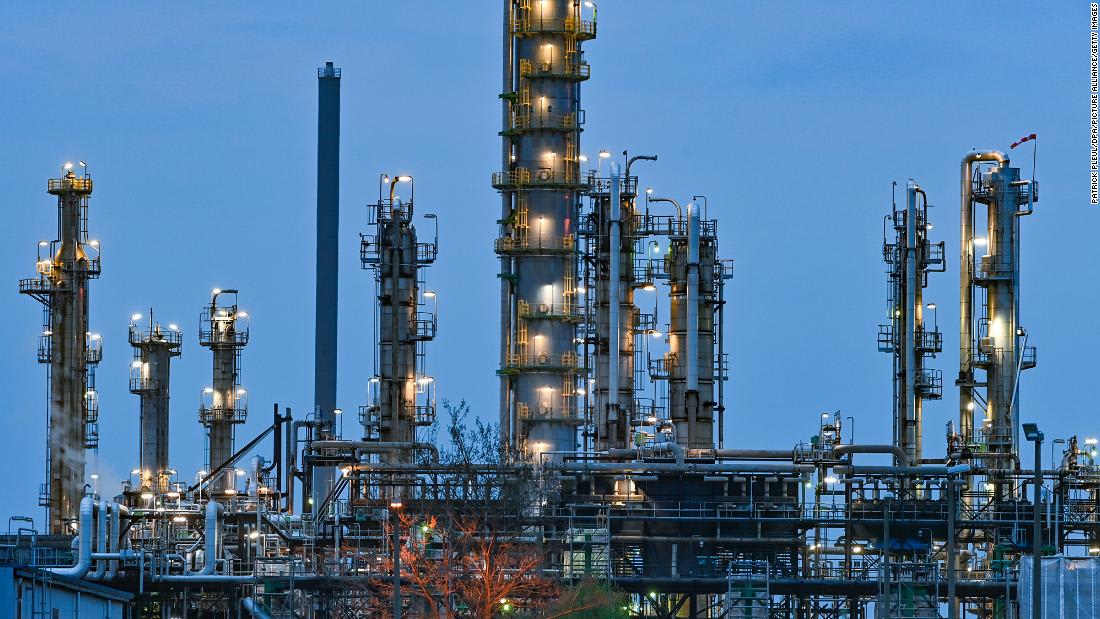The White House on Thursday announced the latest round of sanctions over Russia’s invasion of Ukraine, targeting Russian government officials and elites with a slew of new financial and diplomatic sanctions.
The latest sanctions, issued by the Treasury and State departments, take aim at the luxury assets of several prominent Russian elites – including several yachts and aircraft belonging to Russian President Vladimir Putin’s associates – and “luxury asset management and service companies” working to evade US sanctions, according to a White House statement. The Commerce Department also issued new sanctions restricting Russia’s ability to secure military technologies.
The sanctions target several prominent Russian elites and government officials, including Russian businessman God Nisanov, whom US Secretary of State Antony Blinken calls “one of the richest men in Europe and a close associate of several Russian officials” and Russian Ministry of Foreign Affairs spokesperson Maria Zakharova.
The White House said in a statement that the latest sanctions are designed “to crack down on evasion and tighten our sanctions to enhance enforcement and increase pressure on Putin and his enablers.”
“President Putin’s war against Ukraine is also an attack on the principles of sovereignty and territorial integrity, enshrined in the UN Charter. Ukraine is fighting valiantly to defend its people and its independence with unprecedented assistance from the United States and countries around the world. The United States will continue to support the people of Ukraine while promoting accountability for President Putin and those enabling Russian aggression,” Blinken said in a statement announcing the sanctions.
The Treasury Department’s Office of Foreign Assets Control identified two yachts, the “Russia-flagged Graceful and the Cayman Islands-flagged Olympia,” as “blocked property in which President Vladimir Putin has an interest.”
Putin, according to Treasury, has “taken numerous trips” on the yachts as recently as last year. It also designated several management companies and other owners associated with the yachts, as well as other yacht brokerage companies associated with Putin.
The sanctions also target two other yachts, the Shellest and the Nega, both owned by Russian companies.
“Shellest periodically travels to the coast where President Putin’s infamous Black Sea Palace is located, and President Putin uses Nega for travel in Russia’s North,” the Department of Treasury said.
Thursday’s sanctions also take aim at a “close friend” of Putin, Sergei Pavlovich Roldugin, who, according to the Treasury Department, is “the godfather to one of Putin’s daughters,” as well as Roldugin’s wife, Elena Yuryevna Mirtova. Roldugin is the artistic director of the St. Petersburg Music House and Mirtova is a soprano opera singer.
The administration also sanctioned a series of other yachts and aircraft belonging to Putin associates.
Five additional Russian government officials were placed on the Department of Treasury’s sanctions list, including Yury Slyusar, the president of a Russian state-owned aircraft company; Vitaly Savelyev, the minister of transport; Maxim Reshentnikov, the minister of economic development; Irek Envarovich Faizullin, the minister of construction, housing, and utilities; and Dmitriy Yuryevich Grigorenko, the deputy prime minister.
Severgroup, a “multi-billion-dollar Russia’s investment company with holdings and subsidiaries in metallurgy, engineering, mining, tourism, banking, technology, media, and finance, among other sectors” is also being sanctioned, along with its leader Alexey Mordashov and three members of his family.






